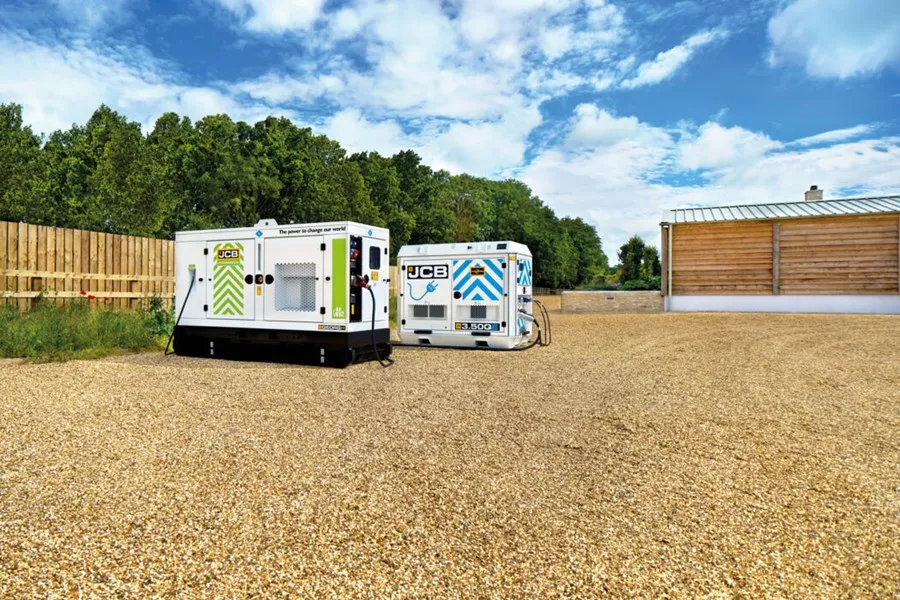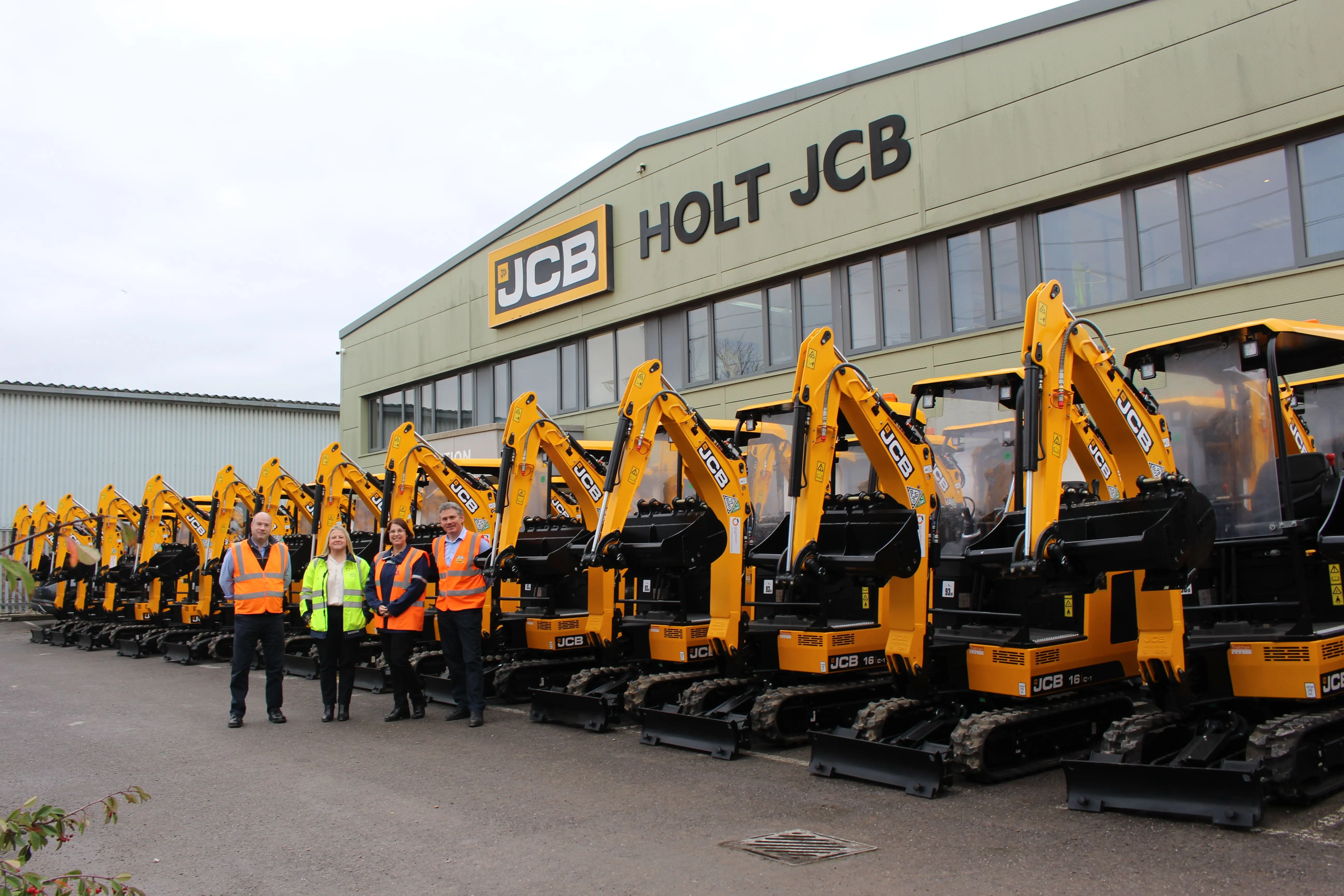JCB HYDROGEN GENERATOR DEBUT PAVES WAY FOR ZERO CARBON FUTURE
JCB today takes another major step forward in hydrogen with the first showing of a generator powered by the net zero fuel.

The company is investing more than £100 million in pioneering hydrogen as a fuel solution for construction and agricultural machines and has already produced 115 evaluation engines which are powering backhoe loaders and Loadall telescopic handlers.
Today a new concept is unveiled at the Hillhead Show – a generator powered by a JCB hydrogen combustion engine. The G60RS H genset offers a glimpse into the future of zero carbon worksites and highlights how the JCB hydrogen generator delivers the same power, performance, and efficiency as its diesel equivalent – but without the carbon.
JCB will showcase how a hydrogen generator works in tandem with JCB’s three-phase Powerpack to create on-site ‘microgrids’ – utilising both battery-electric and hydrogen combustion technology. With energy supplied to the Powerpack from renewable sources, the generator, powered by hydrogen, effectively becomes a battery charger, only running for short periods when the battery needs topping up, or at peak load points. This reduces fuel consumption and offers long periods of silent or quiet hours operation.
Hydrogen generators coupled with battery boxes really are the future, paving the way for the formation of on-site microgrids. Construction sites today rely on diesel power because there are insufficient or inaccessible grid connections, but because diesel is incompatible with net zero targets, customers are rightly seeking alternatives.
Tim Burnhope | JCB’s Group Director of Special Projects
A hydrogen generator offers that alternative, providing clean power on-site. It delivers zero carbon power to the worksite for anything from welfare units to lighting towers. It also works in the same way as its diesel counterpart, ensuring familiar operation, installation, maintenance, and servicing.
Contact your local Holt JCB Sales Manager for more information.




